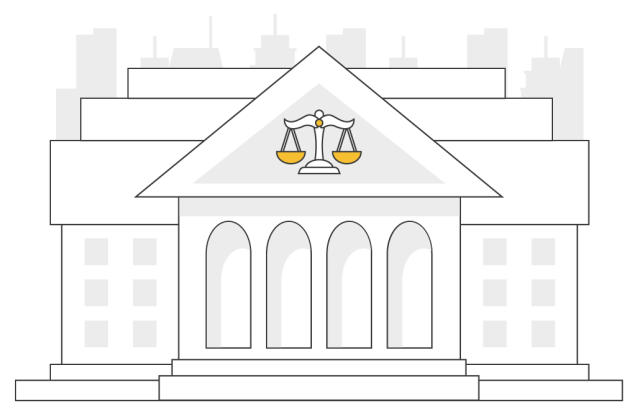Ready to create your free demand letter using our demand letter tool?
Start Demand LetterContents
If you didn't receive a response to your initial demand letter, consider sending a final demand letter before taking legal action.
In this article, we discuss how to write a final demand letter, what to avoid when writing your final demand letter, and even a free sample of a well-crafted final demand letter.
Did you know we have a free tool powered by AI that helps you create a demand letter? Check out our demand letter tool.
Common Reasons to Send a Final Demand Letter
Here are some of the most common reasons people send a final demand letter:
Your client refuses to pay their outstanding invoices for services rendered.
Your client has breached a term in your contract.
Your client has failed to respond to any of your past invoice notices or demand letter.
Why is a Final Demand Letter Important?
Sending a final demand letter before legal action can be a very useful tool for business owners trying to collect past due invoices from clients. Here are at least three reasons to send a final demand letter before suing your client in small claims court:
A final demand letter signals to your client that you are serious about the problem and are willing to spend as much time as is necessary to resolve the dispute.
Your first attempts to settle were through oral demands and negotiations but now you are sending a formal written final demand letter. Chances are that a more formal letter will elicit a more serious response from your client.
A final notice before taking legal action letter could be the last push your client needs to settle the dispute outside of court.
Do I Need to Hire an Attorney to Write a Final Demand Letter?
Many of our clients ask us if they need an attorney to write a final demand letter. There is no requirement stating you need an attorney to write your demand letter, you can write your own letter. The choice is ultimately yours to make.
Here are some considerations when deciding whether to hire a lawyer to help you write a final demand letter:
Legal fees tend to add up quickly. Maybe you just need a lawyer to help you write your final demand letter. Even if that is the case, hiring a lawyer could end up costing you more in the long run.
If you have a complicated legal case you may need help understanding the law. For example, if your client owes you thousands of dollars you may want to consider consulting with an experienced attorney.
What to Avoid in Your Final Demand Letter
There are no set rules for demand letter writing, however, these are general tips for what to avoid when writing a demand letter.
Do not use disparaging language. In general, try not to use language that will convey to the client you are angry or hostile.
Avoid making threats. This letter could end up in court if you and your client do not come to a settlement. Any threats or made-up facts can be used against you later.
Do not fabricate facts. As mentioned above, if you end up going to court over the dispute the judge will read your letter at the hearing. Any facts you claim in the demand letter may be brought up in court and will require further explanation. Avoid looking petty or shady in your letter and in court by being as professional as possible throughout the whole process.
Remember the goal of a demand letter is to be able to come to a settlement outside of court. You want your demands to be met, however, you do not want to further escalate the situation.
What to Include in Your Final Demand Letter
Unsure of what to include in your final demand letter? Below we have included some suggestions.
What to Include at the Top of Your Letter
Include your contact information. Your client needs to have a way to reach you in case they would like to accept your offer.
A clear statement advising your client this is a final demand before legal action is taken. Consider writing “Final Demand,” or “Final Attempt To Collect” at the top of your letter.
Include a concise statement of how much money your client owes you and for what. At the beginning of your letter, include a statement that clearly states how much money your client owes you. For example, if your client owes you $4,000 for services you rendered, this information should be clearly stated at the top of the letter.
What to Include in the Body of Your Letter
Include the most important facts. Consider the “who, what, where, and when” of your dispute. For example, if you own and operate a small architectural firm and provided services for a client who has yet to pay include information about what services your firm provided, how much your firm was supposed to be paid, the date you performed the work, if you completed the work for the client, etc.
Include any other correspondences you sent to your client. This is probably not the first time you send a demand letter to your client. Make sure to discuss this in your letter and attach any past demand letters.
Make sure to include ways the client can pay their outstanding invoices. For example, if you are okay with offering a payment plan to your client because you think they are more likely to pay small installments include the dates you wish to receive payment, and how long your client has to finish making these payments.
Include how you would like to receive payment. Include your mailing address if you want your client to mail a check to you.
What to Include at the End of Your Letter
Include other forms of settlement you are open to. State whether or not you are open to things like mediation before going to court. Mediation is a great option if you have a long-standing business relationship with your client and want to continue that relationship.
Include a deadline. You may want to consider giving your client 14 days to respond to you and state that if they do not respond within that time, you intend to sue them.
Add your signature. At the end of the letter sign your name.
Once you have sent the final demand, keep it in your records. In the event, you do end up filing a small claims lawsuit you can bring it to the hearing and show it to the judge. This is especially handy if your client states they didn't receive the letter.
Learn more about how to write a demand letter.
Sample Final Demand Letter
Below is a sample final demand letter. This sample letter involves an interior design firm that has already sent a client a demand letter for outstanding invoices and a client who continually refuses to pay for services rendered. When using this sample replace those facts with facts from your situation and insert the relevant information of your dispute in:
Interiors, Inc.
123 W 14th ST
New York, NY 10011
December 1, 2022
Client
789 E 23rd ST
New York, NY 10010
Via USPS
Re: Outstanding Invoices for Services Rendered
FINAL DEMAND FOR PAYMENT
Dear Client:This is my final attempt and notice demanding payment for your past-due invoice of $3,000. I am attempting to resolve this out of court, but if we continue not to come to an agreement, I intend to sue.
Here is a statement of my case that I intend to submit to the court:
I own and operate Interiors, Inc., an interior design firm that offers design services to clients in the city. Client came to Interiors, Inc. on July 1, 2022, and requested we help her decorate her new apartment. I started work on Client’s apartment on July 15, 2022, and finished decorating her new space at the end of August. Client received an invoice for $3,000 the same day work was completed. Client did not pay that invoice, as per our contract, by September 15, 2022. I sent Client a demand letter on October 1, 2022, asking for payment on the outstanding invoice. Client never responded to that demand letter or my other attempts to collect. Payment has been past due since August 31, 2022.
You may contact me at [email protected] if you would like to discuss this matter further. Please send a check immediately payable to my name to the address listed above.
If I do not hear from you by December 14, 2022, you leave me no alternative but to file a lawsuit against you. In the event of a lawsuit, I intend to seek redress to the fullest extent permitted by law including, but not limited to, additional damages, legal services costs, court costs, and accrued interest.
Sincerely,
_____________________________
Interiors, Inc.
How to Send a Final Demand Letter
We recommend sending your final demand letter via email or mail. For letters that you mail, consider the following:
Tracking. Make sure to track your final demand letter. With tracking, you will know if the letter reached your client.
Signature Required. You do not necessarily need a signature request. When you send a letter with a signature request, the postal carrier must hand-deliver the letter and your client must sign the letter.
Once the post office attempts delivery 2-3 times, the post office returns the letter to the sender as "undeliverable.”
After Sending a Final Demand Letter Take Legal Action
Did your client also ignore the final demand letter? At this point, it may be time to sue your client in small claims court. Small claims courts handle a variety of cases at a low cost, including breach of contract cases. Small claims courts were intended to be affordable and user-friendly. In some small claims courts, attorneys are not even allowed to represent you! Consider filing a small claims lawsuit if you have sent multiple demand letters to your client and they still refuse to pay their outstanding and past-due payments.
Learn how to file a small claims lawsuit using our California small claims guide and New York small claims guide.

Claudia Diaz
Legal Educator @ People Clerk. Claudia holds a J.D. degree and is a certified mediator in New York and Florida. She has participated in dozens of small claims mediations in New York City courts.
